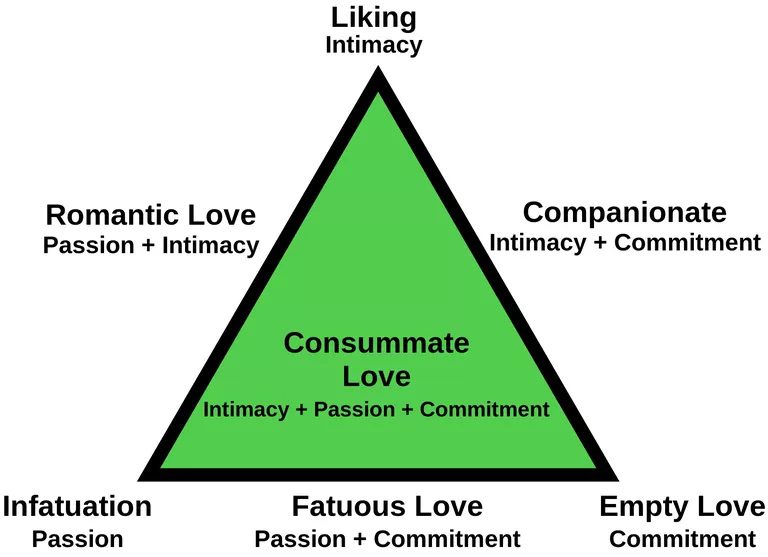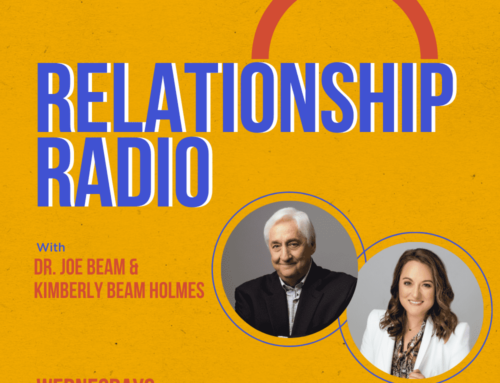One of the most common questions that we get at Marriage Helper is, “What can I do to show my spouse I’ve changed?”
People ask us this question because they’re so desperately wanting to do something to change the trajectory of their marriage and bring their spouse back. There are so many things that go into pulling a marriage back together. We wish we had a magic answer, a simple pill, a quick sentence, or a quick solution to show your spouse you’ve changed.
That isn’t how it works. In reality, it takes understanding the things that have perhaps pushed your spouse away and then beginning to change your behavior over time. Patience and hard work are the keys to showing your spouse that you’ve changed.
Understand that typically, marriage difficulties don’t occur overnight. It takes a while for those things to develop. So, remember two things as we go through this. If you want to show your spouse you’ve changed, you must remember two words: consistency and time.
Dr. Robert Sternberg is a great researcher. Without time to explain his research, Dr. Sternberg says that love has three basic components: intimacy, passion, and commitment.
Let’s define those very quickly before talking about them:
- Intimacy is described as “into-me-see.” In other words, I can be open, transparent, and vulnerable to you, and you can also be those same things to me. We build trust based on that. We open ourselves up to each other based on that. I feel accepted by you as I am, not as you wish me to be. The same thing happens the other way around; it’s reciprocal.
- Passion has to do with sex, of course, but it’s a lot more than that. Sternberg defines it as having a craving for oneness. It involves feelings and desires that lead to physical attraction, romance, and sexual consummation.
- Commitment has to do with feelings that lead a person to remain with someone and move toward shared goals. In another sense, it is a decision made daily because the circumstances of life can change.
We tell people that, of those three components, the one that can fade most rapidly is passion. It can go away faster than the other two, but it can also be rekindled faster than the other two. Those other two things take some time to develop. Intimacy takes time to grow, and if it goes away, it typically goes away slowly because each of you will reach a point of breaking. It can start with just one spouse that feels things such as, “I can’t be open. I can’t be transparent. I can’t be vulnerable. They don’t accept me as I am anymore.” So, intimacy begins to fade away.
Commitment typically does the same thing. If I think, “I don’t feel accepted. I don’t feel loved. I don’t feel I can be open and transparent,” my commitment to you begins to fade away. Could either of those things change that fast? Yes, but typically they do not. They take a while to go away.
Commitment won’t return rapidly; not as rapidly as many of our readers wish. We know that many of you don’t want to hear that, but we promise to always tell you the truth.
There’s an assumption that intimacy and commitment were there in the relationship to begin with. There’s a model and a test you can take to measure your level in each of these components so that you can see it on a triangle. You can begin to see on a scale from one to nine where you rank.
Start to build intimacy and commitment.
Building intimacy and commitment is going to be what shows your spouse you’ve changed. It would have been what drew them to you, to begin with. Even if it wasn’t there in large amounts, you still do those same things to attract them back to you now.
There are going to be people who say, “But what if we weren’t committed in the first place? What if they weren’t committed to me? Is it hopeless? What if we never had intimacy? Does that mean we can’t get it? How can I show my spouse I’ve changed?”
The answer is, there is always hope.
You need to demonstrate consistency with these things over a long period of time to see the fantastic results.
In cultures where there are arranged marriages, the husband and wife may never meet. Based on how they are married in their culture, the bride can be in one part of the building, while the groom is in a different part of the building. They may never even see each other until after they were married. So he’s over here, she’s over here in different rooms, the officiants here, and they meet after they married.
We would say that that wouldn’t start with intimacy, commitment, or passion because they don’t even know each other. But in cultures where arranged marriages exist, the divorce rate is actually much lower than in different cultures where people go through a dating process before being married.
Why is there a lower divorce rate? We can look at many different factors, of course, but one would be that they do eventually develop intimacy. They build commitment. Their commitment actually may exist even before they meet each other in the sense of their beliefs and baggage. Over time, they develop a passion for each other. Even if you think you had little of that before now, how do you develop it?

Dr. Sternberg’s triangular theory of love. Intimacy is at the top of the triangle, commitment is to the right, and passion’s on the left.
If they develop into the middle, Sternberg calls it consummate love. The more intimacy that you have, the closer you get to a score of nine on our compatibility test. If intimacy, passion, and commitment don’t exist now, can they be rebuilt?
We say yes.
It is absolutely possible to show your spouse you’ve changed. Some people may be listening to this and thinking, “Okay, I get that. There are three components of love, intimacy, passion, and commitment, but still, how does that have to relate to showing your spouse you’ve changed?”
You have to dedicate yourself to building intimacy, restoring passion, and deciding to commit. On the front end, the commitment is only going to come from you. You will need to commit to this and make it work because you can’t force your spouse to be committed to the relationship. You’re responsible for these actions and watching how they work by staying the course.
You have to go into it with a mindset of hard work and dedication.
To really understand how to show your spouse you’ve changed, it’s helpful to understand what love is.
At first, you’re going to build commitment by committing yourself to do the things that will help bring your spouse back. You dedicate yourself to being consistent and doing these things over an extended period of time. That is the best way to build commitment.
What you really want to start focusing on in terms of actions is intimacy. How can you build intimacy? The first key is to make small steps towards positive connection and communication. Think of small things that you can do that show your spouse that you care about them. Ask them about their day and listen to them.
You can also work on doing things to become more emotionally attractive. Ask yourself the question, “How can I evoke emotions within others that they enjoy feeling? How can I evoke emotions within my spouse that they enjoy feeling?” When people hear that question, they begin to course-correct themselves. They discover things that they’ve been doing that have pushed their spouse away and not evoked good emotions. They can usually quickly identify things they can start doing. You can always go back to this idea because you have control over your behaviors and your actions. They are the only thing you have control over.
The final part is to stop doing the things that have helped lead to this disconnection in your relationship. Start doing the things that will lead to rebuilding love, rebuilding commitment, intimacy, and passion. Starting with the small things will help you to show your spouse that you’ve changed, because the change will be self-evident.
To connect with a client representative, please fill out this form here.
For more Relationship Radio episodes, visit this page. For more Marriage Helper Content, check out our YouTube Channel!


